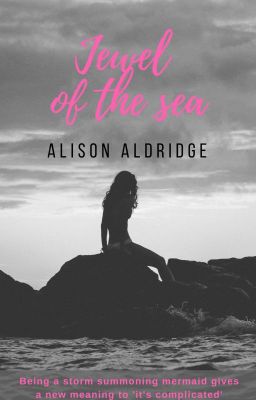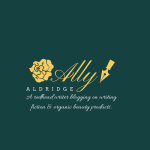Genre Classification
Classifying your genre will be one of the first things you do. However, this may not be as simple as it sounds. Many novels, scripts and other works of art will combine elements of more than one genre within the story that is told. However, there will still be one main genre that flows steadily throughout your story (or series).
I watched Reign on Netflix. This series is classified as a Costume Drama. The main character is Mary Queen of Scots so some might say it is a Period Drama or Historical fiction, but to make compelling viewing the gripping storylines are fictional and I’ve seen it described as Fan Fiction. In addition, there is a lot of Political Drama and Religious Conflict. Many of the storylines are romantic making it Romance fiction.
Understanding Definitions
Sometimes the genre can be tricky to pinpoint as the definitions can be confusing and sound similar to each other.
I’ve had this issue trying to understand what is Magical Realism’? Or, what’s the difference between Urban Fantasy and Paranormal Romance? Then, some genres are based on the target audience of the reader i.e. by age (MG, Tween, YA, etc) or gender (Chick Lit) or personal identification (LGBTQ, Multicultural).
To tackle this, I suggest looking up the definitions online from more than one source. Also, check how novels similar to yours have been classified. Read novels of the genres you are considering and see which feels most similar to yours.
It is important to get this correct to enable the right readers to find your novel.
What if it is many genres?
Say you’ve written a YA, Historical Horror with a cross-dressing African bi-sexual and all the genres remain strong throughout the novel?
Then you have to ask yourself how similar novels have been classified or which market you feel your novel will thrive most strongly (i.e. if there is a current demand for Horror fiction, perhaps place it there).
Target audience:
Write for Kids has an article that goes into more detail on this subject – click here.
- MG (Middle grade): For age 8 to 12. Length = 100 to 150 pages. The main character should be of a similar age. These books often form large series as children of this age will bond with the character and form an attachment.
- Tween: For age 10 to 14. Length = around 150 pages. The main character should be of a similar age. These books are for children who have outgrown MG but are not ready for YA:
- Young Adult: For age 12+. Length = 150 to 225 pages. The main character should be of a similar age, although due to the more mature theme the protagonist is often cast in their final year of high school:
- Coming Of Age: This fiction will deal with the struggles of the protagonist going from being a child to becoming an adult.
- Chick Lit: Literature for young women. The story will relate to the struggles young women face in a humorous way (i.e. dating, health, careers, finance, etc).
- LGBTQ: The story will revolve around a character that is either lesbian, gay, bi-sexual, transgender or questioning their sexuality.
- Multicultural: Books about people of colour and first/native nations.
Common Genres:
These are the main genres most people think of when classifying fiction:
- Adventure: Often involves the characters being in danger and going through a series of events on a journey to reach their goal.
- Romance: The novel usually follows a couple falling in love, often with lots of misunderstanding or barriers to give the story a journey.
- Erotica: The novel will have steamy scenes as this is what the reader is investing in. Usually, there is a romantic plot to carry the story along but not necessarily important.
- Horror: The novel should be scary and make you want to sleep with the light on. The idea is to strike fear into the reader and the characters.
- Crime/Detective: Usually involves a murder but could be any crime. The protagonist could be trying to catch the culprit or could be the criminal.
- Mystery: Involves following clues to solve a crime or to find out information.
- Fan Fiction: The stories are based on characters from other artists works (i.e. Film, TV Show, Book, Play, etc) or famous people (i.e. a boy band, a royal, or an actress).
- Suspense/Thriller: This story should have you sitting on the edge of your seat as you join the characters in evading whatever is lurking in the shadows after them.
- Comedy/Humour: Written in an entertaining way with the goal of making the reader laugh.
World Setting Genres:
- Historical: The story is set in a historical period of time – it is important to do your research to ensure you get your facts correct.
- Western: Set in the American wild west between the eighteenth and nineteenth century.
- Ghost/Supernatural: Story will challenge the fabric of our world. It often includes elements of other genres but the main focus is usually ghosts, spirits, demons, possessions and witchcraft.
- Fantasy: Characters are set in an otherworldly setting. The story would not work in our world.
- High Fantasy: The races and the world is made up. The main character is often a hero on a quest, usually good vs evil. Often includes battles involving combat or magic. This is your traditional classification.
- Hard Fantasy: This involves heavy world building. The story will have a thoroughly developed world with geography, law, languages and reasons for why things are or are not (think Tolkien)
- Techno Fantasy: Has the heart of fantasy but has a strong technology vibe. This could be through using technology to create something or someone. It could be where technology has come to life, for example, a car with a mind of its own.
- Urban Fantasy: The story is set in the real world (usually present but can be set in the past or future). The story usually involves fantasy characters i.e. another race, species or paranormal or supernatural beings.
- Paranormal Romance: Usually involves a romantic relationship between a human and supernatural (i.e. a vampire, witch, shapeshifter, ghost, time travel or someone with psychic abilities). Themes will mix with fantasy, science fiction and sometimes horror.
- Magic Realism: Story involves magic or supernatural but presented within a realistic environment. The magic events are ordinary occurrences and not explained. There is something deeper connected to enlightening your mind of conventional constraints.
- Science Fiction: Often set in the future or on another planet. The story is based on scientific ideas or imagined ideas.
- Hard Science Fiction: The story will be supported by scientific facts and theories making the story more realistic and possible.
Length Classifications:
More information on this can be found on Fiction Factor:
- Micro Fiction: Up to 100 words.
- Flash Fiction: 100 to 1,000 words.
- Short Story: 1,000 to 7,500 words.
- Novelette: 7,5000 to 20,000
- Novella: 20,000 to 50,000
- Novel: 50,000 to 110,000
- Epics/Sequels: 110,000+
Jewel of the sea

My novel Jewel of the sea (formerly Drift) is:
- YA fiction: This is because my protagonist is a fifteen-year-old girl. She does turn sixteen within the novel and there is scope for a series.
- Coming of Age: She starts her period, learns to wear makeup, has her first kiss, etc. Then there are all the firsts with her changing body… like becoming a mermaid.
- Romance: The plot is driven by her crush on her best friend who is dating Kya. Kya’s brother (hot swim team captain and Mariah’s nemesis) offers to help break the couple up if she’ll kiss him – let’s just say it gets complicated.
- Paranormal romance: She doesn’t know she is a mermaid and able to shift between her human and mermaid form. And she has weather manipulation powers. Plus the complicated romance (see above).
- Urban Fantasy: The fantastical elements are set in a real world environment – it is loosely based around my hometown.
- Novel: Currently it is 80k but I am constantly revising it.
I have classified it as a YA Urban Fantasy Novel.
What genre do you write?
Does your novel have multiple genres?
Please let me know if these descriptions helped you classify your novel’s genres.
This article was previously posted on my old blog and has been updated.



One thought on “What is your genre?”